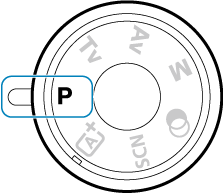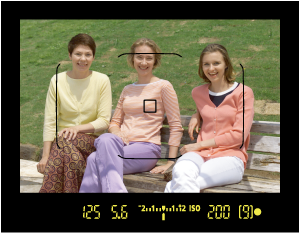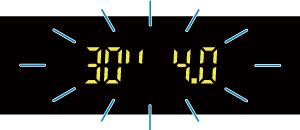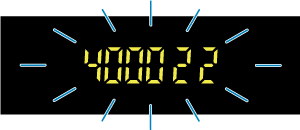Program AE Mode (P)
The camera automatically sets the shutter speed and aperture value to suit the subject's brightness.
stands for Program.
AE stands for Auto Exposure.
-
Set the Mode dial to
.

-
Focus on the subject.

- As you look through the viewfinder, aim the AF point over the subject, then press the shutter button halfway.
- After the camera focuses, the focus indicator
in the lower right of the viewfinder lights up (in One-Shot AF mode).
- The shutter speed and aperture value will be set automatically and displayed in the viewfinder.
-
Check the display.

- Standard exposure is available unless the shutter speed and aperture value are blinking.
-
Take the picture.
- Compose the shot and press the shutter button completely.
Caution
-

-
If the “30"” shutter speed and the lowest f/number blink, it indicates underexposure.
Increase the ISO speed or use flash.
-

-
If the “4000” shutter speed and the highest f/number blink, it indicates overexposure.
Lower the ISO speed or use an ND filter (sold separately) to reduce the amount of light entering the lens.
Note
Differences between
and
modes
- In
mode, many functions, such as the AF method and metering mode, are set automatically to prevent spoiled shots. The functions you can set are limited. On the other hand, with
mode, only the shutter speed and aperture value are set automatically. You can freely set the AF method, metering mode, and other functions.
Program shift
- With Program AE, you can freely change the combination (program) of shutter speed and aperture value set by the camera while maintaining the same exposure. This is called Program shift.
- With Program shift, you can press the shutter button halfway, then turn the
dial until the desired shutter speed or aperture value is displayed.
- Program shift is canceled automatically after the picture is taken.
- Program shift cannot be used with flash.
